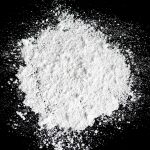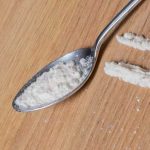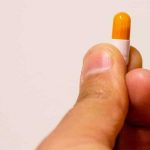- What Is Plugging?
- Effects Of Plugging Cocaine
- Dangers Of Plugging Cocaine
- Cocaine Addiction Treatment
Cocaine is a stimulant drug that is commonly snorted through nasal cavities. However, many people also use cocaine and other recreational drugs by “plugging,” or administering the drug rectally.
Any method of cocaine use can be dangerous but plugging drugs poses its own unique risks. Plugging cocaine can result in more severe effects, rectal damage, and an increased risk of overdose. In addition, plugging cocaine can result in dependence and addiction.
What Is Plugging?
There are several ways to administer drugs, including oral, intravenous, intranasal, and rectal routes. Inserting a drug rectally, also known as shafting or booty bumping, may be preferred when someone wants to increase a drug’s effects.
Some people may choose a rectal route of administration because it is not associated with the visible signs of abuse that injecting or snorting may cause (such as track marks and nose bleeds).
However, putting an illicit drug into your body for recreational use is dangerous and can cause physical damage or a drug overdose.
How Plugging Cocaine Works
Cocaine powder can be combined with water and inserted into the rectum with a syringe. Inserting a drug rectally likely causes it to enter the bloodstream faster. This can result in more intense effects but also increases the risk of a drug overdose.
Stimulants, like amphetamines and methamphetamine, are associated with plugging. However, opioids, like heroin, may also be used rectally.
Effects Of Plugging Cocaine
As a central nervous system stimulant, cocaine can increase energy, alertness, and temporary euphoria. The effects of cocaine may appear within 3-5 minutes when taken rectally, similar to using the drug intranasally.
Depending on how much you take and the route of administration, frequent drug use can result in serious adverse effects as well. Plugging cocaine may cause a more intense euphoric rush but it also increases the risk of unpredictable or violent behavior.
Short-term side-effects of cocaine use may include:
- sensitivity to sight, sound, or touch
- decreased appetite
- difficulty sleeping
- restlessness
- irritability
- anxiety
- tremors
- chest pain
- constricted blood vessels
- increased blood pressure
- irregular heart rate
- dilated pupils
- increased body temperature
Evidence on plugging cocaine is limited, although research on other drugs suggests the effects may occur within minutes when used rectally. Plugging methamphetamine, a similar stimulant drug, is associated with a quick onset of effects—within 3-5 minutes.
This may result in the frequent use of cocaine to maintain its effects, which can lead to dependence and addiction.
Dangers Of Plugging Cocaine
Although plugging may appear to be safer than injecting or snorting it, it allows the drug to enter the bloodstream quickly. This can be dangerous and increases the risk of drug overdose and death, which is caused by cardiac arrest or seizures.
Long-term cocaine abuse can interfere with physical health and have dangerous effects on the cardiovascular and gastrointestinal systems as well as the brain. Cocaine also poses risks to mental health and repeated use can increase anxiety and cause paranoia, panic, and aggression.
Plugging cocaine can result in the following health problems:
- damaged rectal muscles and tissues
- rectal discomfort
- rectal bleeding
- decreased blood circulation
- abdominal pain
- diarrhea
- seizures
- stroke
- heart attack
- coma
Frequent plugging may lead to other forms of cocaine abuse, including snorting or injecting. In addition, your body can become dependent on the drug and you may develop a substance use disorder (SUD).
Cocaine Addiction Treatment
Someone with cocaine addiction may experience intense cravings and behavioral changes that result in uncontrollable cocaine abuse. If you or a loved one is struggling with a cocaine addiction, it can be difficult to stop on your own.
A professional addiction treatment center can help you overcome addiction and learn to manage cravings. Most inpatient and outpatient treatment centers offer a wide range of services that target addiction and co-occurring mental health disorders.
Cocaine addiction treatment may involve:
- group therapy
- behavioral therapy
- family therapy
- individual counseling
- addiction education
- 12-step support groups
If you would like more information on treating cocaine addiction, please contact Northeast Addictions Treatment Center today to speak with a specialist.
Cocaine Addiction Treatment
-
Outpatient Drug Rehab for Addiction Treatment
Taking advantage of outpatient rehab can help a person overcome the substance abuse lifestyle, while gaining access to group counseling, individual therapy and classes. People in recovery can learn skills to help manage stress...
-
Day Treatment – Partial Hospitalization (PHP)
-
Intensive Outpatient Program for Substance Abuse (IOP)
-
Evidence Based Treatment (EBT)
Sources
- International Journal of Molecular Sciences — Acute And Chronic Effects Of Cocaine On Cardiovascular Health
- National Institute On Drug Abuse (NIDA) — How Is Cocaine Used?
- National Institute On Drug Abuse (NIDA) — What Are The Short-Term Effects Of Cocaine Use?
- Western Journal of Emergency Medicine — Bottoms Up: Methamphetamine Toxicity From An Unusual Route
Written by
Northeast Addition Editorial Team
©2024 Northeast Addition Center | All Rights Reserved
This page does not provide medical advice.











